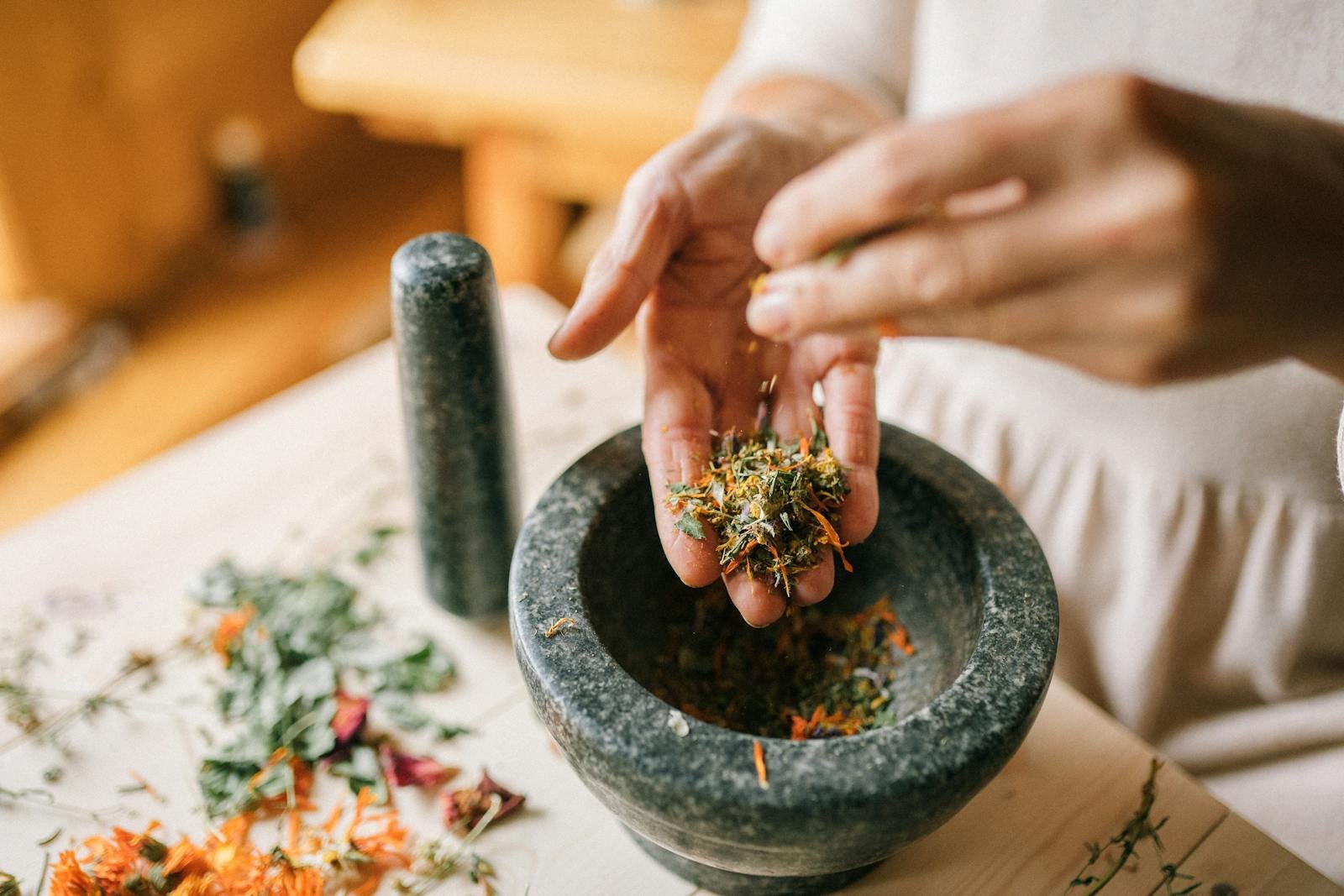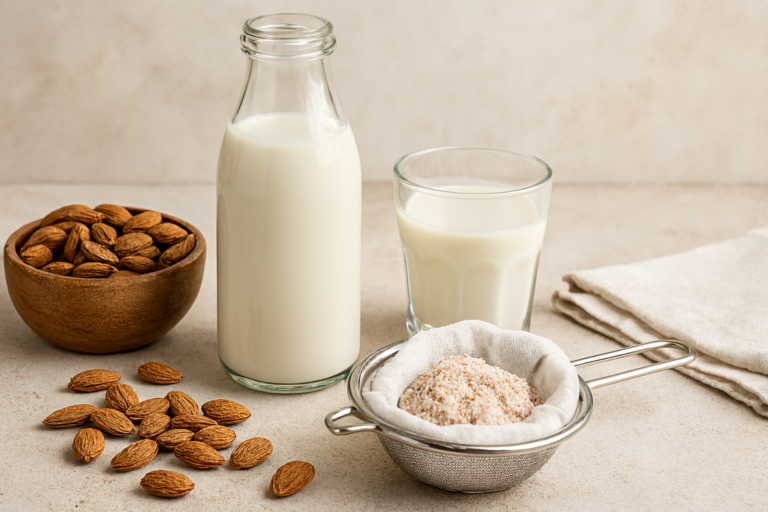How to Improve Your Energy Levels with Herbal Remedies
Many people struggle with low energy levels, making it challenging to maintain productivity and enthusiasm throughout the day. Fortunately, herbal remedies can offer natural solutions to enhance your vitality and combat fatigue. In this article, you will discover various herbs backed by traditional uses and scientific research, which can help boost your energy and improve your overall well-being. By integrating these natural remedies into your routine, you may experience a noticeable increase in your energy levels and a renewed sense of vitality.
Key Takeaways:
- Incorporate adaptogenic herbs like Ashwagandha and Rhodiola to help the body cope with stress and enhance energy resilience.
- Utilize herbal teas, such as green tea and ginseng, to provide a gentle caffeine boost and improve mental clarity without causing jitters.
- Be mindful of dosage and consult with a healthcare professional before starting any new herbal regimen to ensure safety and effectiveness.
- Combine herbal remedies with a balanced diet and regular exercise for a comprehensive approach to boosting energy levels.
- Stay hydrated and consider infusions with herbs like peppermint or ginger to maintain energy throughout the day.
The Science of Herbal Energy Boosters
How Herbal Remedies Interact with Your Body
Herbal remedies often work synergistically with your body’s natural systems, enhancing energy levels by facilitating various metabolic processes. Adaptogens, a category of herbs such as ashwagandha and rhodiola, help balance cortisol levels, allowing your body to adapt better to stress and fatigue. This interaction can lead to increased stamina and improved mental clarity, as it mitigates the effects of stress-induced fatigue that many people experience in their daily lives. When you integrate these herbs into your routine, you might notice not just a reduction in tiredness but also a more balanced mood, thanks to their multifaceted effects on the endocrine system.
<pFurthermore, these remedies generally contain a range of secondary metabolites that can further influence your energy. For instance, herbs like ginseng contain compounds called ginsenosides, which have been shown to enhance mitochondrial function, the powerhouse of your cells. This enhancement boosts your energy production at a cellular level, leading to more sustained energy throughout the day. The intricate way in which these plants can affect your physiology illustrates why so many people turn to herbal solutions as a natural alternative to energy-boosting supplements and medications.
Key Nutrients and Compounds that Combat Fatigue
Several key nutrients and compounds found in herbal remedies are particularly effective at combating fatigue and improving energy levels. For example, B vitamins, often present in herbs like nettle and moringa, are imperative for energy metabolism as they play a vital role in converting food into fuel. Similarly, iron-rich herbs such as dandelion root and yellow dock are known to support hemoglobin production, ensuring that your cells receive adequate oxygenation, which is imperative for sustained energy. By prioritizing these nutrients, you can significantly enhance your physical and mental vitality.
Another group of compounds with remarkable energy-boosting properties are flavonoids found in herbs like green tea and citrus peels. These antioxidants not only support your body’s cellular pathways but also improve cognitive function and reduce feelings of fatigue. Incorporating a diverse array of these energy-enhancing natural ingredients into your daily routine can create a cumulative effect, leading to a noticeable increase in your overall energy levels. Consistent consumption can result in a profound sense of wellness, so exploring options like herbal teas or tinctures may be a simple yet effective way to incorporate these beneficial compounds into your life.
Top Herbal Remedies for Enhanced Vitality
Ginseng: Nature’s Energizer
Ginseng is often hailed as one of the top herbal remedies for combating fatigue and enhancing vitality. This powerful root, particularly Panax ginseng, is known for its ability to improve energy levels by stimulating the body’s metabolism and supporting adrenal health. Studies have shown that ginseng can increase physical performance, improve cognitive function, and boost your overall mood. By incorporating ginseng into your daily routine, you may experience reduced feelings of tiredness and an increase in your capacity to take on daily responsibilities with vigor.
Many individuals choose to take ginseng in supplement form, but it can also be enjoyed as a tea or added to smoothies for an extra energy kick. Observations reveal that ginseng not only helps in elevating energy levels but also supports the immune system, making it a well-rounded herb for those looking to maintain an active lifestyle. If you’re seeking a natural way to energize your day, consider how ginseng may fit into your wellness regimen.
Rhodiola Rosea: A Natural Stress Reliever
Rhodiola Rosea has gained recognition for its adaptogenic properties, enabling your body to adapt to stress and restore balance. This herb not only helps to elevate your energy levels but also works to combat the fatigue and lethargy often caused by chronic stress. Research supports that Rhodiola can significantly reduce feelings of tiredness and improve mental performance, which is vital when you need focus and energy throughout your day. It’s especially popular among athletes and high performers looking for that competitive edge.
Rhodiola can easily be incorporated into your daily life, often available in capsule or tincture form. Not only does it help with energy levels, but it has also shown promise in enhancing mood and alleviating anxiety, which can frequently drain your vitality. By utilizing Rhodiola Rosea, you can enhance your overall well-being, allowing for a more energized and vibrant lifestyle.
Ashwagandha: Fuel for Mental and Physical Stamina
Ashwagandha, an ancient herb used in Ayurvedic medicine, has a long history of enhancing physical and mental stamina. This adaptogen helps your body manage stress effectively, enabling you to maintain energy levels even during challenging times. Research indicates that ashwagandha can improve strength, enhance endurance, and provide a sense of calm clarity, making it an excellent choice for anyone looking to boost their overall vitality. By incorporating ashwagandha into your daily routine, you may find that you are better equipped to tackle both physical and mental challenges with ease.
This powerful herb can be consumed in various forms, including capsules, powders, or as a tea. Users often report heightened energy levels and improved cognitive function after consistent use, making ashwagandha a go-to option for those juggling busy lives and wanting to maintain top performance without succumbing to fatigue.
Practical Guidance on Incorporating Herbs into Your Routine
Choosing the Right Form: Teas, Supplements, or Extracts
When selecting your preferred method of consuming herbal remedies, consider your lifestyle and the type of energy boost you’re looking for. Herbal teas, for example, are not only soothing and hydrating, but they also provide a low-calorie option packed with antioxidants. For those who prefer convenience, capsules and supplements might be an ideal choice. Look for standardized extracts that ensure ingredient consistency and efficacy. For instance, if you’re interested in ginseng, finding a supplement that offers a specific percentage of ginsenosides ensures you’re getting enough active compounds to support energy levels effectively.
Another option worth exploring is liquid extracts, which can be easily added to water or smoothies. This form often allows for quicker absorption, meaning you might experience the benefits sooner than with other delivery methods. To determine which form suits you best, it can be helpful to try a few different types and observe how your body responds. Be sure to consult with a healthcare professional, especially if you’re on medications or have underlying health conditions, to ensure safety and efficacy.
Daily Rituals for Optimal Energy Boosting
Integrating herbal remedies into your daily rituals can enhance their effectiveness and help establish a consistent routine that supports increased energy. Start your day with a revitalizing cup of herbal tea, focusing on blends like peppermint or green tea, which are known for their invigorating properties. Following your morning routine, consider a mid-morning herbal tincture, such as ashwagandha or rhodiola, to adapt to stress and maintain energy levels throughout the day.
Incorporating short breaks for herbal infusions can also keep energy levels steady. Make a habit of stepping away from your desk for a few minutes to enjoy a calming herbal tea, or prepare a refreshing herbal smoothie as an afternoon snack. This not only gives your mind a break but also elevates your body’s ability to sustain energy. By establishing these small practices, you not only boost your energy levels but also infuse each day with a sense of mindfulness and wellness.
To further enhance these rituals, consider the timing of your herbal remedies strategically around your most demanding tasks. For example, consuming energy-boosting herbs before a workout or a high-focus meeting can significantly impact your performance and mood. Additionally, you may decide to wind down your day with relaxing herbs like chamomile or lemon balm, allowing you to not only nurture your energy stores but also ensure a restful night’s sleep, setting you up for success the following day.
Potential Side Effects and Precautions
Common Risks and Allergic Reactions
Some herbal remedies may cause side effects, particularly if taken in excess or if you have sensitivities. For instance, ginseng can lead to headaches, digestive issues, and insomnia in certain individuals. Similarly, adaptogenic herbs like rhodiola can cause irritability or restlessness for some users. While chamomile is often used for its calming effects, it might trigger allergic reactions in people sensitive to related plants. Look out for symptoms such as skin rashes, gastrointestinal distress, or respiratory issues. Monitoring your body’s response when you start any new herbal preparation is key to ensuring your safety.
If you have a history of allergies, some herbs may not be advisable. Certain plants, such as echinacea or feverfew, can elicit allergic reactions, particularly in those with allergies to daisies or other related species. Always check ingredient labels if you opt for a herbal supplement, and pay attention to potential cross-reactivity with other products you might be using. Introducing herbs slowly into your routine allows you to gauge your tolerance and safeguard against adverse reactions.
Interactions with Medications and Existing Health Conditions
Herbs can have powerful effects on your body’s chemistry, and interactions may occur if you are taking prescription medications. For example, St. John’s wort is commonly known for its role in enhancing mood, but it can interfere with the effectiveness of medications such as antidepressants, birth control pills, and anticoagulants. This kind of interaction could either diminish the benefits of your medications or amplify their side effects, leading to health complications. Being aware of these possibilities is vital to optimizing your health while using herbal remedies.
Furthermore, if you have existing health conditions such as diabetes, hypertension, or liver disease, certain herbal remedies could pose risks. Herbal supplements can affect blood sugar levels or alter blood pressure, complicating existing treatment plans. For example, licorice root can elevate blood pressure and lead to potassium depletion, which may be concerning for anyone already managing high blood pressure. Consulting with a healthcare provider ensures that you can navigate these interactions and choose the right remedies without jeopardizing your wellness.
Understanding these interactions means acknowledging that while herbal remedies can be beneficial, they are not a one-size-fits-all solution. Assess your complete health profile, including medications and existing conditions, to make informed decisions. Always keep an open line of communication with your healthcare provider when incorporating new herbs into your regimen, ensuring you maintain a safe and effective approach to enhancing your energy levels.
Personalizing Your Herbal Approach
Tailoring Remedies to Individual Energy Needs
Recognizing that each person has unique energy requirements is necessary when selecting herbal remedies. Factors such as age, health status, stress levels, and diet can significantly influence how you respond to various herbs. For instance, individuals who experience energy dips during specific times of the day may benefit from adaptogens like ashwagandha, which helps to regulate cortisol levels and enhance resilience to stress. On the other hand, if your fatigue stems from a nutrient deficiency, herbs rich in vitamins and minerals—such as nettle or dandelion—might be more effective for your needs.
Your energy lifestyle must also be considered when personalizing your herbal approach. If you lead an active lifestyle, herbs like Maca can provide quick bursts of energy, while those who engage more in mental tasks may find ginkgo biloba helpful for enhancing cognitive function. Start by assessing your energy patterns and preferences, then experiment with combinations or single herbs to determine what aligns best with your unique energy profile.
How Lifestyle Changes Complement Herbal Remedies
Incorporating herbal remedies into your routine can yield more profound benefits when combined with intentional lifestyle changes. For example, integrating regular physical activity not only enhances energy levels on its own but can also amplify the efficacy of herbal adaptogens. Likewise, adopting a balanced diet that includes whole foods, fiber, and sufficient hydration supports your body’s natural systems, offering synergy with herbs designed for energy enhancement.
Pairing herbal remedies with lifestyle adjustments creates a feedback loop that can dramatically improve your energy baseline. Engaging in mindfulness practices, such as yoga or meditation, has shown to improve overall vitality and mental clarity, which can be further supported by stamina-enhancing herbs. Understanding these interchangeable aspects can empower you to create a more sustainable energy strategy that remains effective over the long term.
To wrap up
Now that you have explored several herbal remedies to enhance your energy levels, consider incorporating these natural solutions into your daily routine. By doing so, you can support your overall well-being and combat feelings of fatigue and lethargy. Herbs like ginseng, rhodiola, and ashwagandha have been traditionally used to naturally invigorate your body and mind. Always consult with a healthcare professional before starting any new supplement, especially if you have existing health conditions or are taking medications.
For further insights into energy-boosting herbs, you can check out the 10 Best Herbs for Energy: How to Fight General Fatigue. By exploring these herbal options and understanding how they can positively impact your energy levels, you can take significant strides toward a more vibrant and energized lifestyle. Stay informed and make wellness a priority, as the right herbs can make a remarkable difference in your daily energy levels.
FAQ
Q: What are some effective herbal remedies to boost energy levels?
A: There are several herbal remedies known for their energy-enhancing properties. Ginseng is one of the most popular, as it’s believed to enhance physical performance and reduce fatigue. Ashwagandha is another effective option that may help the body adapt to stress, leading to a more stable energy level. Additionally, Rhodiola rosea can improve endurance and reduce fatigue, while maca root is often used to enhance stamina and energy, particularly during physical exertion.
Q: How do I incorporate these herbs into my daily routine?
A: Incorporating herbal remedies into your daily routine can be done in various ways. You can brew teas using dried herbs such as ginseng or Rhodiola. Supplements in capsule form are widely available for those who prefer a more concentrated dosage. Adding powdered forms, like maca, to smoothies or oatmeal can also be effective. It’s important to start with small doses and gradually increase as needed while keeping track of how your body responds.
Q: Are there any side effects associated with herbal energy boosters?
A: While herbal remedies are generally considered safe for most people, they may still cause side effects in some individuals. Common side effects can include digestive upset, insomnia, or increased heart rate. It’s advisable to consult with a healthcare professional before starting any new herbal regimen, especially if you’re pregnant, nursing, or taking medications. Monitoring your body’s response to new herbs can help you manage any adverse effects.
Q: Can herbal remedies replace conventional methods for boosting energy?
A: Herbal remedies can be a complementary approach to improving energy levels but should not be viewed as a complete replacement for conventional methods. A balanced diet, regular exercise, and proper sleep are foundational for maintaining energy. Herbal remedies can enhance these efforts, but it’s imperative to use a holistic approach that combines lifestyle adjustments with herbal support for optimum results.
Q: How long does it take to see results from herbal energy remedies?
A: The time it takes to experience results from herbal remedies can vary significantly among individuals. Some people may feel an increase in energy relatively quickly, within a few days to a week, especially with stimulating herbs like ginseng. However, for others, it may take several weeks to notice substantial changes in energy levels. Consistency in use, along with a healthy lifestyle, plays a significant role in achieving desired results.








